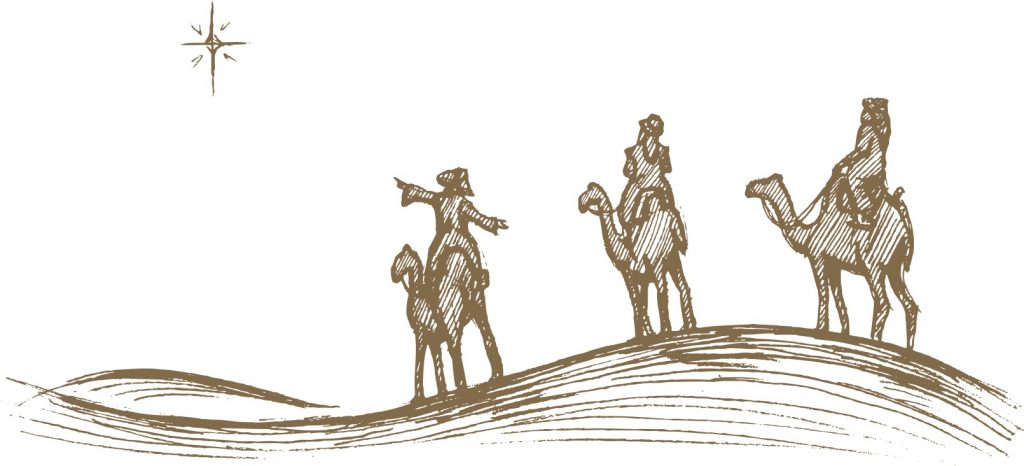
Last January, I preached a sermon on the Sunday nearest Epiphany, focusing on the theme of “another way.” Matthew’s gospel tells us about how the Magi, having paid homage to Jesus, were warned in a dream to return to their homes “by another way.” What other ways, I asked that Sunday, would God be asking us to ponder, indeed travel this year? Little did I know just what dramatic “other ways” would befall us in 2020.
While we have ample depictions of the Magi traveling to see Jesus, we have fewer images of what that return home, by another way, might have looked like. Recently, a friend mentioned a painting by the 15th century artist, Giovanni da Modena, of the Magi returning home from Bethlehem by another way, in this case by sea. In this depiction, the seas look rough, the ship is crowded, the Magi look apprehensive, and the camels are nowhere to be seen!
It is an apt depiction of what we experienced in 2020, hence the common, not-so-fond farewells to the annus horribilis that we have heard in recent weeks! What’s more, we are still uncertain of what “other ways” will now be required of us in 2021. While we have never been more eager for a new year to arrive, have we ever been so tentative about what a new year might look like, as we are now?
Whatever “other ways” we will be required to travel this year, indeed whatever rough seas might be encountered, it strikes me that there are a few important things that might guide us, as we set sail into the new year ahead.
First, it will be a year where purpose is more important than plans. As accustomed as we became to shelving plans in 2020, our sense of purpose has, in so many cases, strengthened. Be it on an individual or community level, we have been forced to rely on purpose as our guide, the force which binds us together.
Secondly, it will be a year where curiosity should prevail over certainty. As the author Margaret Wheatley reminds us, certainty does not give us stability, it actually gives us more chaos. Our current and deep polarization is evidence of what happens when presumed certainty holds dominance over the curiosity we need in order to learn from and about others. It is time for a reversal of these two.
Lastly, the importance of “we” over “me” has surfaced ever more clearly. We cannot risk navigating the upcoming days simply in the “me” mode. Our obligations to serve others—past, present, and future—must direct our thinking and doing. In turn that will shape our own personal well-being.
These are vital roadmaps for our “other ways” in 2021. Equipped with them, the work of Christmas, as Howard Thurman reminded us, truly begins.
This post originally appeared as a Weekly Meditation, available to members here.